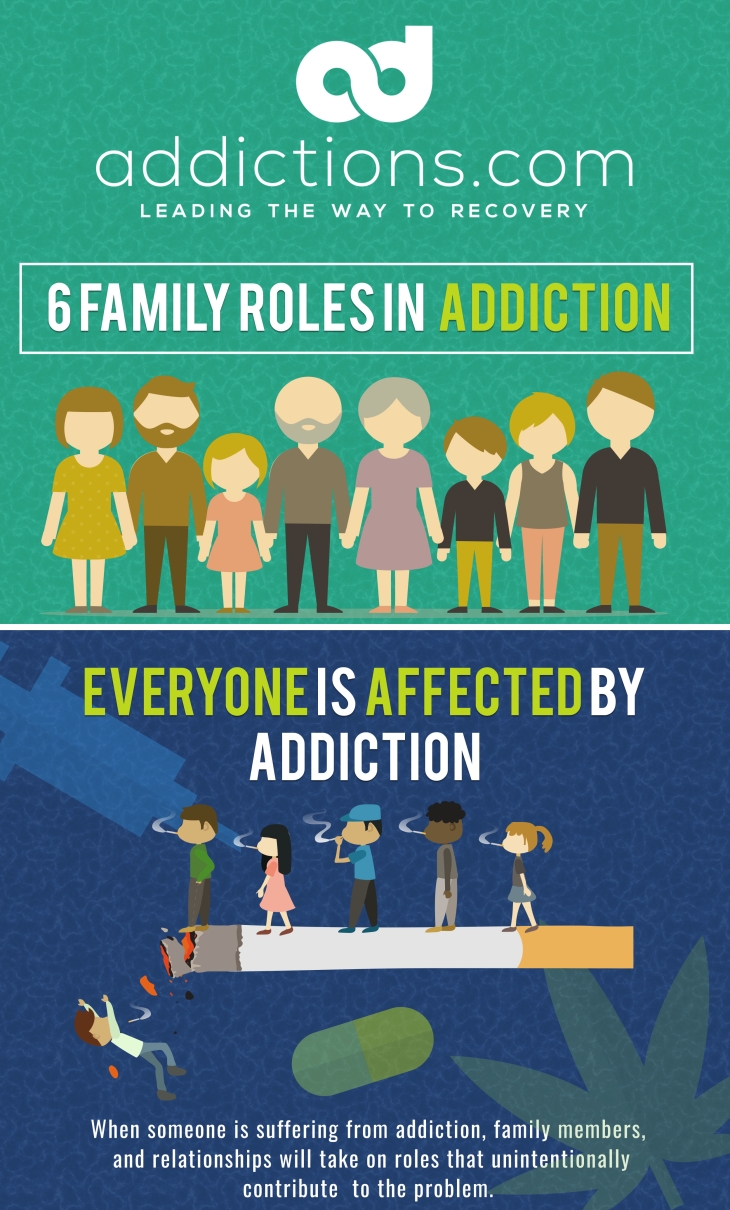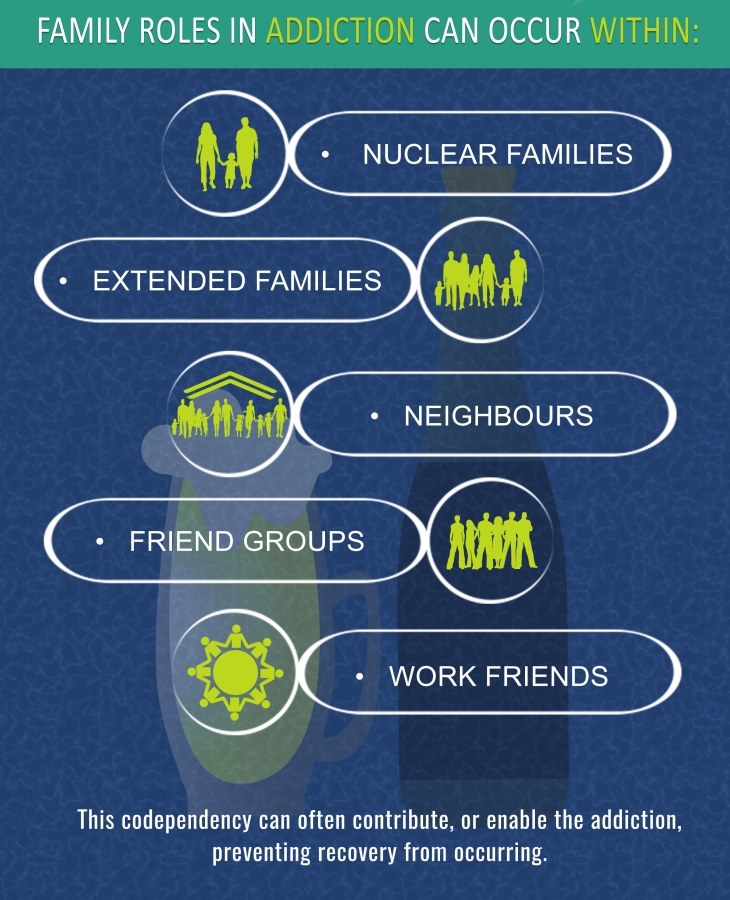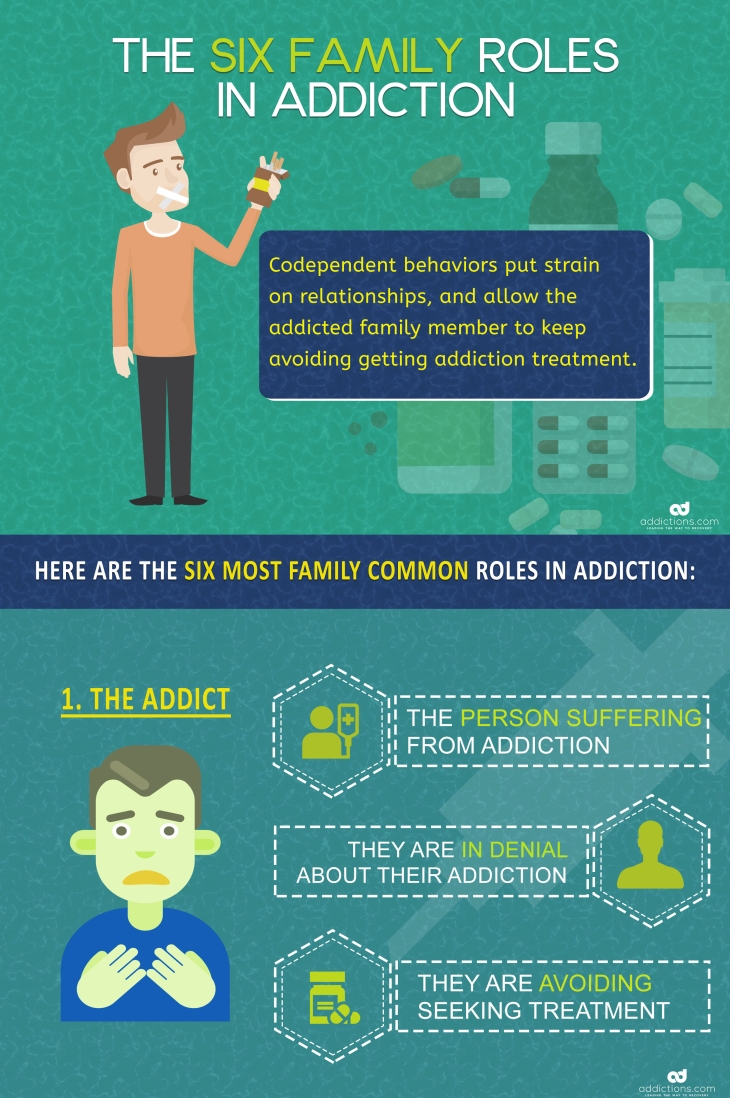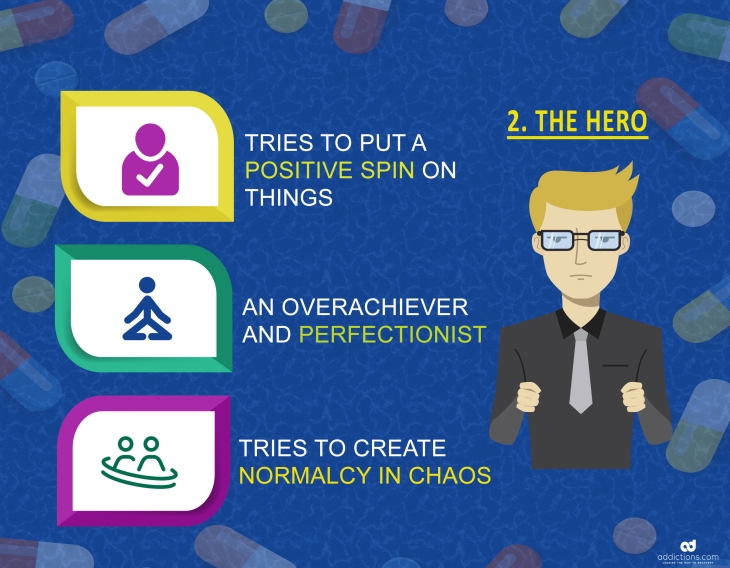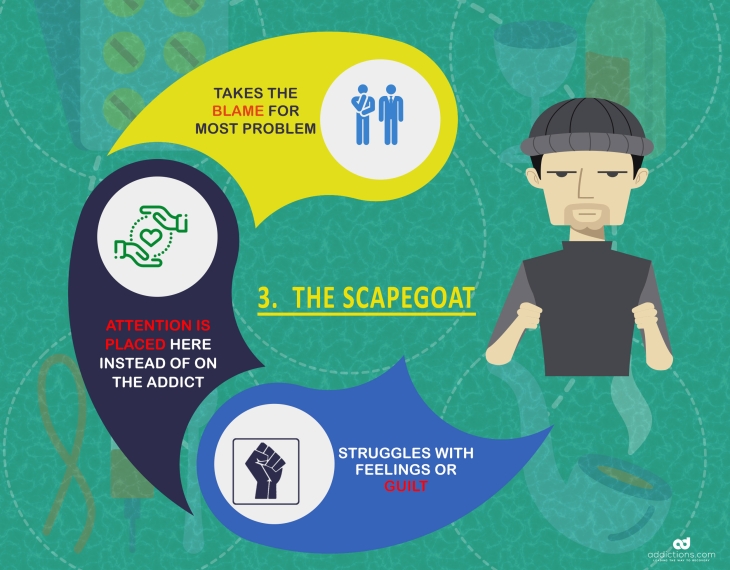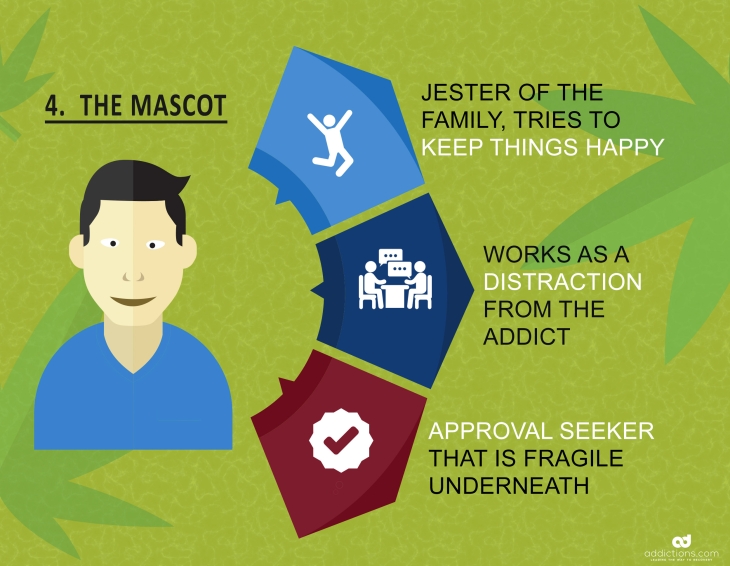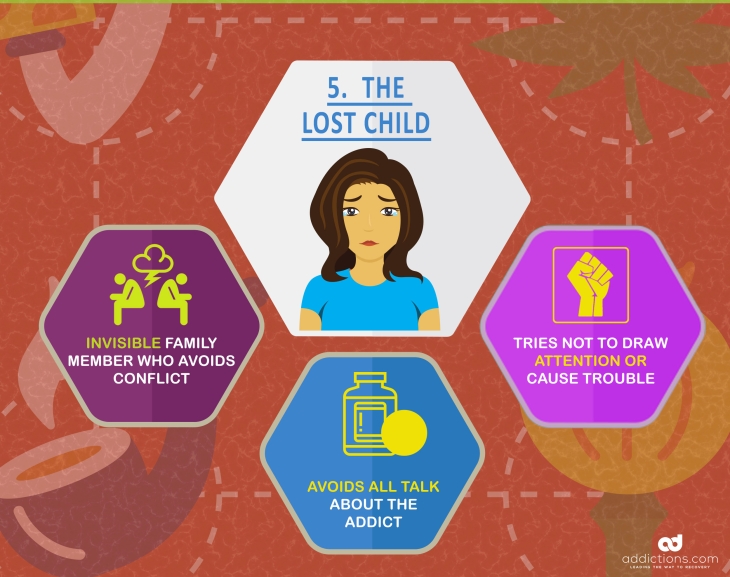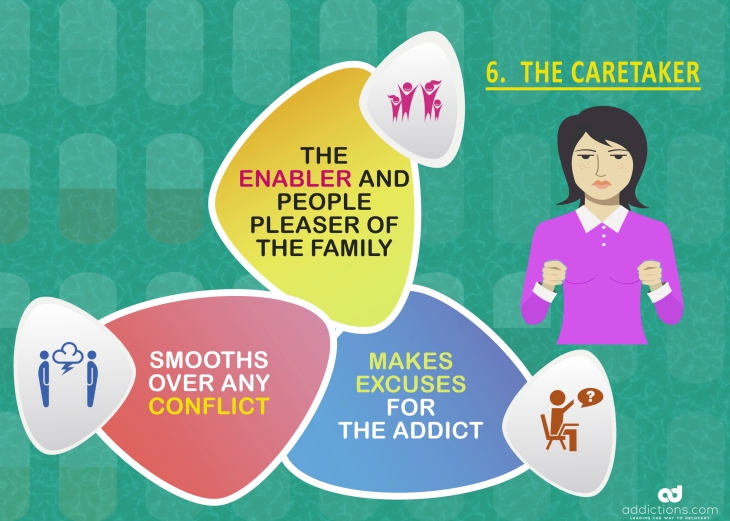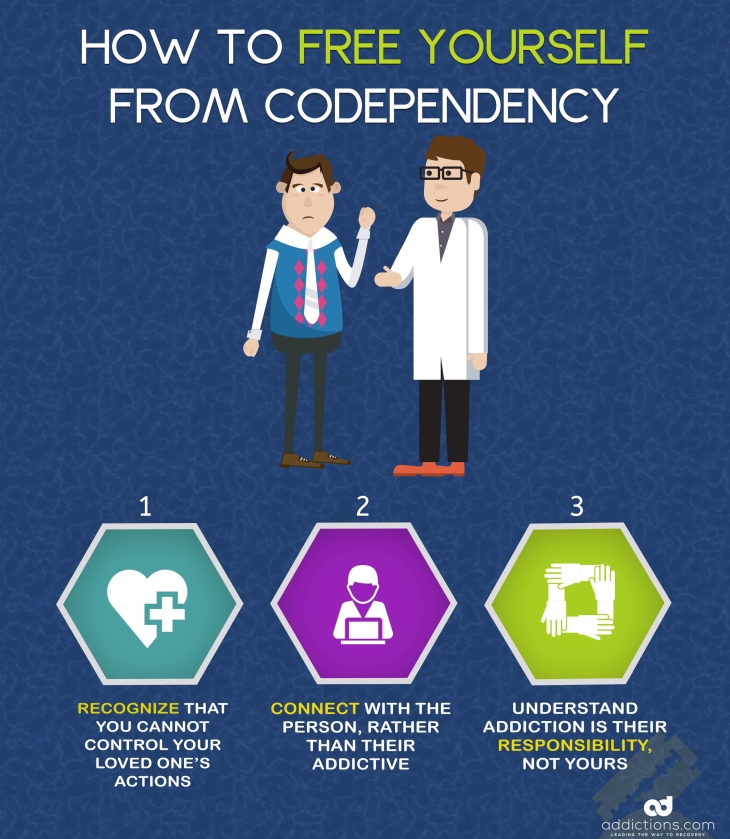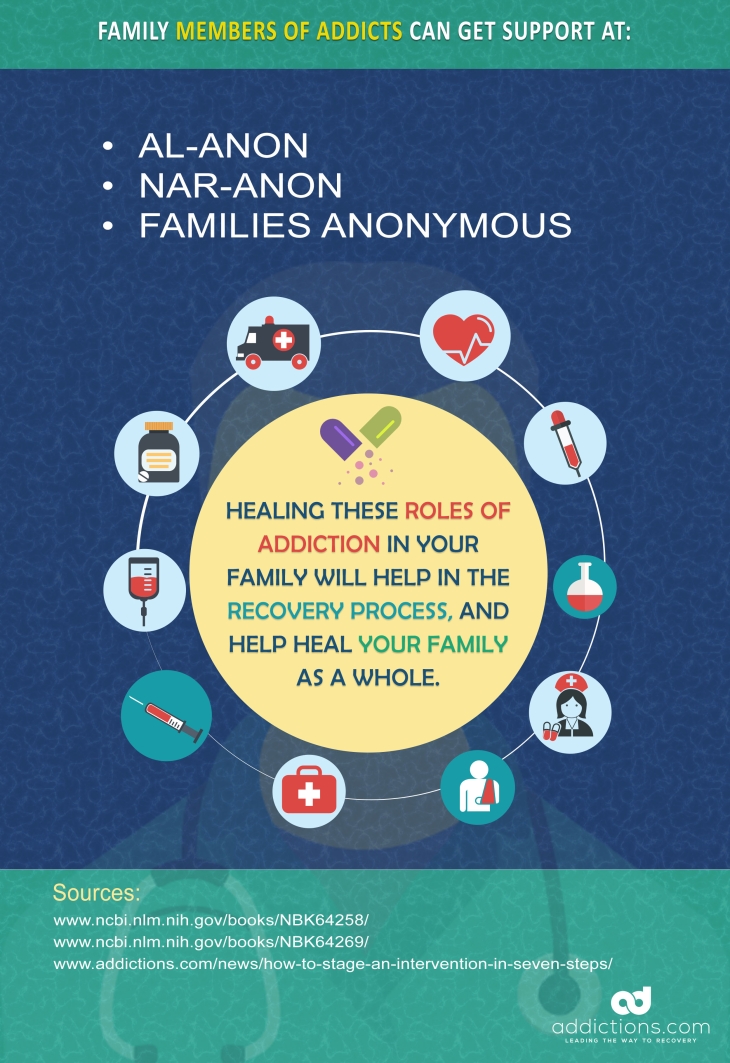Addiction is a family disease affecting not just the individual with a substance use disorder, but the entire family. When someone in your family is addicted and in denial, there are roles that family members assume, which contribute to the problem. This phenomenon is a natural reaction to the chaos and pain that addiction creates—family roles in addiction are basically coping strategies that can have negative effects on everyone involved. Healing the roles of family members in addiction will allow everyone to become their authentic self, which will also help the addicted person’s recovery.
Addiction and the American Family
Substance use disorder affects the family unit in distinct and harmful ways. Children may begin to take on adult responsibilities to compensate for their parent’s problems, or one parent may take on the full emotional weight of the family’s suffering as a result of their spouse’s deficiencies. These effects often extend beyond the nuclear family. Extended family members, friends, coworkers, and neighbors will also have emotional struggles and increased burdens as a result of the addicted person’s negative actions and neglect.
A Need for Honesty about the Roles of Family Members in Addiction
There is no need to blame anyone for having adopted codependent roles to cope with the behavior of an addicted family member, but there is a need for self-examination and honesty. Family members need to first recognize the unhealthy roles they have adopted, so that everyone can work together to heal dysfunction.
Role 1: The Addict
Substance use disorder causes a person to live in an uncontrolled, chaotic state, where drugs or alcohol are their primary way of dealing with day to day existence. Physical and psychological dependency has trained them to prioritize substance use as if their lives depend upon it, and they will therefore lie, cheat, and steal to keep using or drinking. Within the family unit, the person with substance use disorder becomes the fulcrum around which the family’s whole world pivots, causing everyone else to take on specific roles in response.
Role 2: The Hero
The family hero seeks to improve the family’s image, and bring the family unit closer together. They tend to ignore the problem in favor of putting a positive spin on things, and trying to ward off despair with false hope. They are usually hard working overachievers burdened by guilt, fear, pressure, and shame, who use perfectionism to promote a feeling of normalcy in a dysfunctional environment. They may appear to be successful, accomplished, and well-balanced from the outside, while feeling isolated and anxious on the inside.
Role 3: The Scapegoat
The Scapegoat often gets blamed for the family’s problems, because they act out with negative behavior to shift attention away from the addicted family member, or as a reaction to the positive attention that is often heaped onto the Hero. The Scapegoat gives the family a sense of purpose by focusing blame, voices the anger that other family members feel but do not express, and shields the addicted family member from the negative feelings they create, as well as the need for addiction treatment. Scapegoats get in trouble and fail at work or school, may become violent or promiscuous, and often turn to alcohol or drugs, perpetuating a family pattern of addiction. They are often overwhelmed by feelings of guilt, shame, and emptiness.
Role 4: The Mascot
The Mascot is the jester of the family, relieving tension and creating distractions by telling jokes and striving to keep things light. They are secretly fragile, and desperate for approval. Although they do provide comic relief, they may also make inappropriate jokes that can be hurtful, and which can hinder the addicted family member’s recovery. They may seem to take nothing seriously, but underneath they feel enormous anger, shame, and fear. Many Mascots eventually self-medicate with drugs or alcohol, putting them at risk of becoming another addicted family member.
Role 5: The Lost Child
The invisible family member, always careful not to draw attention or cause trouble, is known as the Lost Child. They usually care very deeply, but bury their feelings of hurt, anger, guilt, and loneliness, while denying their own needs. They check out emotionally from the family drama, avoid any conversation about substances or the family roles in addiction, and spend most of their time hiding away with solitary activities. The Lost Child will often have difficulty making decisions and forming intimate relationships because they are out of touch with their true feelings.
Role 6: The Caretaker
The Caretaker, or enabler, is all about denial. They want to please everyone and smooth over conflict to protect family members and keep the whole unit going. The Caretaker enables the addicted family member by making excuses, taking on problems that aren’t their own, and compensating for failures and neglected responsibilities. This enabling is not limited to the addicted family member, but extends to all members of the codependent family. In this way, the Caretaker perpetuates all of the roles of family members in addiction, trying to convince everyone, and themselves, that drugs or alcohol are not really a problem, and that no one needs help. They act out of deep feelings of fear, helplessness, and inadequacy.
The Problem with Family Roles in Addiction
The dysfunctional roles that family members take on in response to an addicted family member’s behavior enable drug and alcohol use, normalize a problem that needs to be addressed and treated, and create additional emotional issues that lead the entire family to suffer just as much, if not more, than the addicted family member. These codependent relationships must be corrected for the family to achieve the kind of healthy functioning that supports addiction recovery.
What are codependent behaviors?
- Making your mood dependent upon your loved one’s mood.
- Acting in compulsive ways that help you cope in the short term, but are unhealthy, such as shoplifting, binge eating, and obsessive internet use.
- Directing the anger you feel towards your addicted family member at others.
- Making decisions about what other family members need, or giving up your autonomy and allowing others to make decisions for you.
- Suffering low self-esteem because you focus all your time and energy on family members.
- Reacting irrationally, or with violence, to the consequences of a loved one’s substance use disorder.
- Neglecting your own emotional, spiritual, and physical needs to prioritize the perceived needs of family members.
- Avoiding connections with people outside of the family so you don’t have to talk about the addiction or the need for addiction treatment.
- Lying to yourself or others about the problem of addiction in the family.
- Worrying obsessively about your addicted family member’s drug or alcohol use.
Codependent behaviors reduce your quality of life, while perpetuating a system that allows the addicted family member to keep using and avoiding addiction treatment. Over time, as people continue to play their codependent role within the family unit, they start to “become” the role, losing touch with their true selves.
While getting the addicted family member into treatment may seem like the “real” solution to the problems of a dysfunctional family, ending addictive behavior will not magically end codependency and restore healthy functioning. In addition, abstinence from drug and alcohol misuse cannot be sustained if everyone around the person in recovery continues to cling to their family roles in addiction. Freeing each individual from their role will help free the family unit from the oppression of addiction.
How to Break Codependency in Addiction
Recovery from addiction requires abstaining from mood-altering substances. Recovery from codependency requires abstaining from over-attachment to the behavior of an addicted family member. Codependency develops when you allow a family member’s addiction to direct your own choices and actions. To free yourself from codependency, you have to recognize that you cannot control what your loved one does, and that you need to connect with and respond to the person, rather than their addictive behavior.
The challenge is to develop detachment, meaning you mentally separate the family member from their addiction, and mentally separate yourself from it as well. This doesn’t mean you stop caring; it simply means that you figure out healthy ways to offer love and support, while accepting that your loved one’s addiction is their own responsibility, not yours. This can be tricky, as the actions of the individual with substance use disorder do directly affect the rest of the family, but it is important to recognize the impact that your own actions can have, as well, hindering recovery and encouraging substance use.
Codependent family members should seek help for themselves as well as for the addicted individual. Professional counseling and/or 12-step groups like Al-Anon, Nar-Anon, and Families Anonymous can help you shed destructive family roles and start living as your authentic self. Support groups and counseling can help you recognize the difference between natural, healthy concern and obsessive worrying, and teach you how to provide loving support without enabling addictive behaviors.
Treatment Options for Addiction
Addiction is a family disease, and therefore treatment needs to involve the entire family. The first step to healing the family may involve staging an intervention to break through your loved one’s denial and get them the help they need. Be sure to educate yourself about substance use disorder and move past your own denial so that you can confront your loved one with compassion and firmness. You may want to consider hiring a professional interventionist to help, or contacting a local addiction treatment facility that provides intervention services.
Once your loved one is in treatment, your first job is to actively fight your own addiction to your family role. Each family member needs to become whole as an individual instead of living as an actor performing in a dysfunctional pattern. You all need to face the situation honestly, without guilt, shame, or punishment. A family made up of whole individuals will not only be better equipped to contribute to the addicted family member’s recovery, they will be better able to overcome their own limitations and become healthier and happier themselves.
Inpatient treatment programs typically require the patient to live at the treatment facility full-time, for a period of two weeks to 90 days. During this time, families can visit the patient, and should get involved in education and family therapy. This time of separation can also provide the family with the opportunity to rest and refocus on themselves, recognizing their own needs and re-evaluating their habitual behavior. Patients will then transition into outpatient treatment (although some start out in outpatient programs), where they will receive treatment while also living at home. Family involvement in recovery will naturally increase at this time, and family therapy should be utilized to improve family functioning and to restructure the home environment to better support recovery.
Family Therapy in Addiction Treatment
In a substance use disorder treatment program, family therapy is used to leverage the strengths and resources of the family unit to encourage abstinence from drugs and alcohol. It also functions to heal the damage that addiction has inflicted on the family. Family therapy sessions treat the family unit, and/or the patient as an integral part of the family unit. The therapist works with the patient and family members to solve problems and improve communication. At times, counselors may wish to work privately with family members, without the patient’s presence, to better focus on that individual or individual’s needs.
Substance use disorder treatment seeks to aid the recovery of the patient, and family therapy seeks to aid the recovery of all family members. Family therapy should always be part of addiction treatment, as changes made by one member will impact the rest of the family, for better or worse. These interdependent relationships can serve the patient and their loved ones in both positive and negative ways, therefore family therapy should offer a means to rid the family of negative, codependent roles, to create positive change for the whole family.

